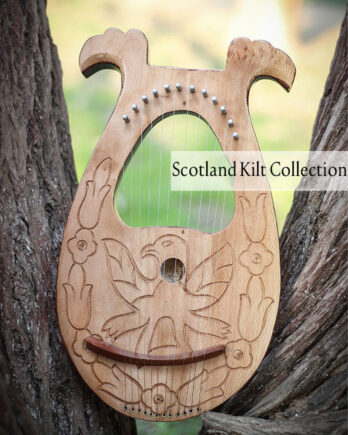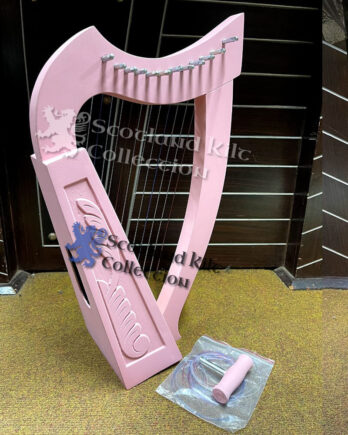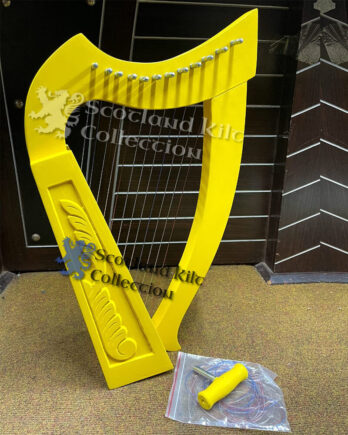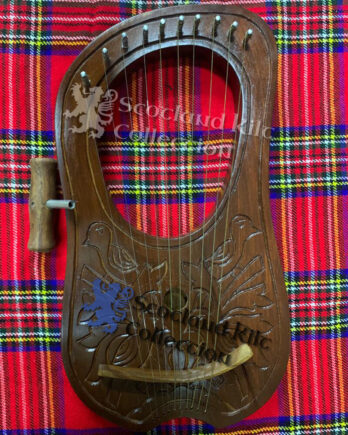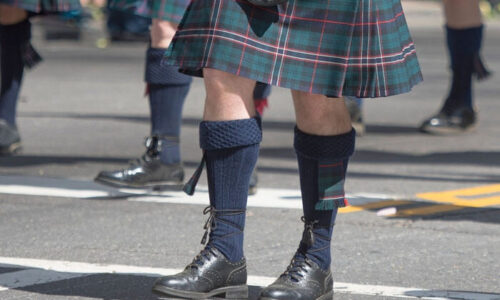The art of playing an instrument is satisfying adventure. If you’re keen on the harp, then you may be thinking about whether it’s possible to study on a Lyre. Although the two instruments have certain similarities, they also have several key differences that need to be aware of before beginning.
In this post we’ll discuss the issue “Can you learn harp on a lyre?” as well as offer some helpful tips for those who are just beginning to begin playing one or both of these instruments.

Can You Learn Harp on a Lyre?
The quick answer to this question is “yes, you can learn harp on a lyre.” There are however some differentiators between the two instruments to be conscious of.
The lyre is a tiny stringed instrument dating all the way back to Greece. The lyre is played using either a plectrum or a pick and has a restricted number of notes. The harp in contrast is a bigger instrument, with upwards of 47 strings. It’s played using fingers and is able to play a larger range of notes.
Here are some similarities and distinctions between the lyre as well as the Harp:
Similarities:
- Both instruments are strings and are played through plucking strings.
- The two instruments are able to be played as a solo instrument or part of an group.
- Both instruments require excellent hand-eye coordination, as well as a feeling of the rhythm.
Differences:
- The lyre is smaller, and offers a smaller number of notes. However, the harp is bigger and offers a wider selection of notes.
- The lyre can be played using a pick and the harp can be played with fingers.
- The way to play the lyre differs in comparison to the way you play the harp.
Tips for Learning Harp or Lyre
No matter if you want to learn playing the harp, or the lyre, these are some helpful tips to aid you to start:
- Choose a tutor – A qualified teacher can assist you in learning the correct techniques and also provide you with constructive feedback about your game.
- Continuous repetition is essential to improve the skills you have. Make sure you set the time every day for practicing.
- Begin with songs that are simple – For a newbie you must begin by playing songs that are simple to learn. It will allow you to build your confidence and skills.
- Be focused on technique. Pay focus on your hand’s posture, hand positioning and the position of your fingers. A good technique can help you move more easily and help you avoid the risk of injury.
- Learn with patience – Learning music takes patience and time. Be patient if you aren’t able to progress as fast as you’d prefer.
FAQs:
Q. What is easier to master either the harp or the lyre?
A. Each instrument comes with its distinct problems. But, the lyre is typically thought of as more a breeze to learn since there are fewer strings as well as it is a more straightforward method of playing.
Q. Do I require reading music in order to play the lyre, harp or the harp?
A. While it’s useful knowing how to listen to music, it’s not necessary. A lot of musicians learn through ear, or by studying others.
Q. How long will it take to get started playing the lyre, or the harp?
A. The length of time to master the ability the instrument you want to play dependent on the level of your proficiency and the amount of time you spend practicing. It can take up to one year to be proficient.
Conclusion:
Learning how to play the harp, or lyre could be satisfying for those who love music. There are some distinct features between both instruments, there is a possibility to study harp using the lyre, with dedication and practicing.
No matter if you want to learn either the lyre or harp and find a great teacher who is consistent in practicing and working on your technique could aid you in improvements. Be patient and begin with songs that are simple in order to learn how to play an instrument is a long-term commitment and requires a lot of time.
If you’re just beginning and would like to learn how to play the harp, or lyre and lyre, we hope this post has helped. If you follow these suggestions along with some determination, you’ll be able to begin the journey to being a professional musician.


